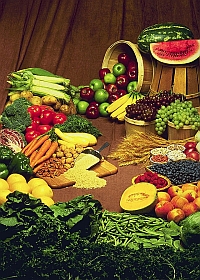The UN’s Codex Alimentarius Commission issued new safety standards for infant formula, fruit, and seafood, as well as recommendations for nutritional labeling. The commission, a joint standards body of the UN’s Food and Agriculture Organization (FAO) and the World Health Organization (WHO), released the standards at its 2-7 July meeting in Rome.
Codex standards can serve as a basis for national legislation, and provide food safety benchmarks for international trade in food. They require, however, implementation by national authorities to have any effect.
One of the new standards limits the concentrations of melamine allowed to 0.15 milligram per kilogram in liquid infant formula. Melamine is an organic base chemical used to make plastics, adhesives, counter tops, dishware, and whiteboards.
Melamine can be lethal at high concentrations and has been used illegally to increase apparent protein content in food products including infant formula and milk powder, which has led to death and illness in infants. The commission in 2010 adopted a maximum melamine level of 1 mg/kg for powdered infant formula and of 2.5 mg/kg for other foods and animal feed.
The Codex Commission agreed to a limit of 10 micrograms/kg of aflatoxins in dried figs, and provided recommendations for testing. Aflatoxins are a class of toxic metabolites produced by certain fungi in and on foods and feeds. They have received more attention from regulatory authorities because of their demonstrated potential cancer-causing effects in laboratory animals and acute toxic effects in humans.
The commission issued recommendation for the wrapping and handling of pre-cut melon slices, because of their increased exposure to dangerous bacteria, such as salmonella and listeria. The commission recommends pre-cut melons be wrapped, packaged, and refrigerated as soon as possible and distributed at temperatures of 4 degrees C (39.2 F) or less. Recommendations also include cooling and cold-storing as soon as possible after harvest, and regular disinfecting of knife blades used for cutting or peeling.
The Codex Commission agreed on a set of preventive hygiene measures aimed to control food-borne viruses in mollusks, such as mussels and oysters. The commision notes that viruses can persist for months in bivalve mollusks, and can survive freezing, refrigeration, UV radiation and disinfection, but are sensitive to heat.
The main hazard to mollusks comes from biological (i.e. fecal) contamination of the waters in which they grow. The commission recommends, if a likelihood or evidence of contamination is found, authorities close mollusk harvesting areas, and either destroy contaminated mollusks or submit already harvested mollusks to heat treatment to kill the viruses.
The commission urged food manufacturers to better label nutritional content on their products to help consumers make better food purchasing decisions. The recommendations support WHO’s Strategy on Diet, Physical Activity and Health.
Read more:
- Study Urges Deep Cut in Forage Fish Catch
- Goal Setting Helps Change Diets of Adults with Diabetes
- National Academies Urge Single, Simple Food Rating System
- Research-Based Healthy Eating Plate Unveiled
* * *


 RSS - Posts
RSS - Posts
[…] UN Body Releases New Food Safety Standards […]